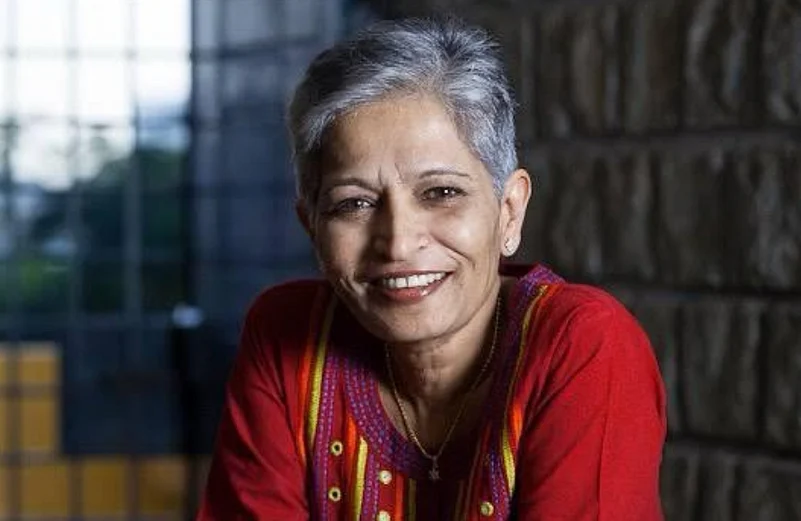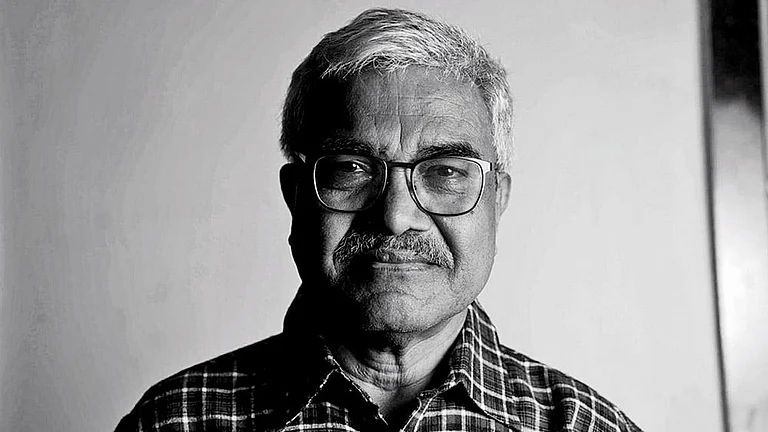The assassination of journalist Gauri Lankesh known for her vocal criticism of right-wing Hindutva ideologies, shook India on the night of September 5, 2017. Lankesh, a prominent voice against religious extremism and a defender of secularism, was gunned down outside her home in West Bengaluru. The two assailants, identified as Parashuram Waghmore and Ganesh Miskin, arrived on a motorcycle and executed the murder with ruthless precision. This act of violence not only silenced a prominent critic but also raised serious questions about the safety of dissenting voices in India.
The Special Investigation Team (SIT) was tasked with unravelling the conspiracy behind the murder. Their investigation revealed that the murder of the 55-year-old journalist was part of a larger pattern of violence orchestrated by extremist Hindutva groups targeting critics of their ideology. The SIT’s probe identified a network of individuals involved in planning and executing the assassination, highlighting the organised and premeditated nature of the crime.
Seven years have passed since Lankesh was killed, but justice still remains out of reach, with the trial ongoing and many questions still unanswered.
Gauri Lankesh Murder Case Timeline
2017: Initial Investigation and Arrests
The SIT’s investigation into Lankesh’s murder began with a focus on identifying the perpetrators and their accomplices. In the immediate aftermath, they traced the involvement of Mohan Nayak, who was arrested in July 2018. Nayak was identified as the person who had rented a house in Thagachaguppe village near Kumbalgodu, which served as a hideout for the shooters before the murder. His involvement was uncovered through meticulous tracing of communications and rental agreements made under the pretense of operating an Ayurvedic clinic.
2018: Expansion of the Investigation and Arrests
As the investigation progressed, the SIT expanded its efforts to uncover the broader network behind the murder. In July 2018, two more arrest were made – Sudhanva Gondalekar and Amit Baddi who were found to have ties to extremist groups were arrested. The SIT’s efforts also led to the arrest of Sharad Kalaskar and Rishikesh Deodikar, who were also implicated in the conspiracy. By the end of July 2018, the SIT had apprehended 17 individuals associated with extremist Hindutva organisations.
“The members of this organisation targeted persons who they identified to be inimical to their belief and ideology. The members strictly followed the guidelines and principles mentioned in ‘Kshatra Dharma Sadhana’, a book published by Sanatan Sanstha,” the SIT stated after filing a chargesheet against the accused in November 2018.
2021: Supreme Court’s Intervention
Despite significant progress, the trial faced delays due to various factors, including the Covid-19 pandemic and frequent adjournments requested by the accused. In October 2021, the Supreme Court intervened by overturning a high court decision that had dropped charges under the Karnataka Control of Organised Crimes Act (KCOCA).
2022-2023: Trial Proceedings and Bail Controversies
The formal trial commenced in July 2022. However, the proceedings were hampered by slow progress and procedural delays. In December 2023, the Karnataka High Court granted bail to Mohan Nayak, the first accused to receive such relief. This decision sparked controversy, leading both the Karnataka government and Kavitha Lankesh, Gauri’s sister, to challenge the bail order.
2024: Supreme Court Orders for Speedy Trial
In response to ongoing delays and mounting pressure, the Supreme Court issued a notice to Nayak addressing the plea for cancellation of his bail. The Court emphasised that any violation of bail conditions could prompt a reassessment of Nayak’s bail status.
Recent Developments And Supreme Court Order
Abiding by the Supreme Court's recent directive for a swift trial in the 2017 murder of journalist Gauri Lankesh, the Special Public Prosecutor (SPP) will request more frequent court sessions when the trial resumes next week.
According to Karnataka police sources, the Special Investigation Team (SIT) will ask the trial court for more frequent hearings, aiming for at least two weeks of sessions per month instead of the current one-week monthly schedule.
The Supreme Court’s recent order to accelerate the trial is a significant development in the Gauri Lankesh murder case. Kavitha Lankesh has been a prominent advocate for a swift resolution, urging the establishment of special courts to expedite the trial process. In December 2023, Chief Minister Siddaramaiah directed the creation of a special court to handle the cases of Gauri Lankesh and MM Kalburgi, another critic who was murdered. However, the exact measures taken in response to this directive have not been fully detailed.
Arvind Narrain of the Karnataka People’s Union of Civil Liberties highlighted that while bail is generally the norm, the principle that incarceration should be an exception is not always applied consistently. He argued that the severity of the offence should be a crucial factor in bail decisions, though this principle is not uniformly applied across cases.
The Gauri Lankesh murder case remains a pivotal legal matter with far-reaching implications for justice and accountability. The Supreme Court’s recent order to expedite the trial reflects an urgent need to address delays and ensure that those responsible for this grievous crime are held accountable. As the legal proceedings move forward, there is a collective focus on achieving
justice for Gauri Lankesh and reaffirming the principles of freedom of speech and the protection of dissenting voices in India.





























